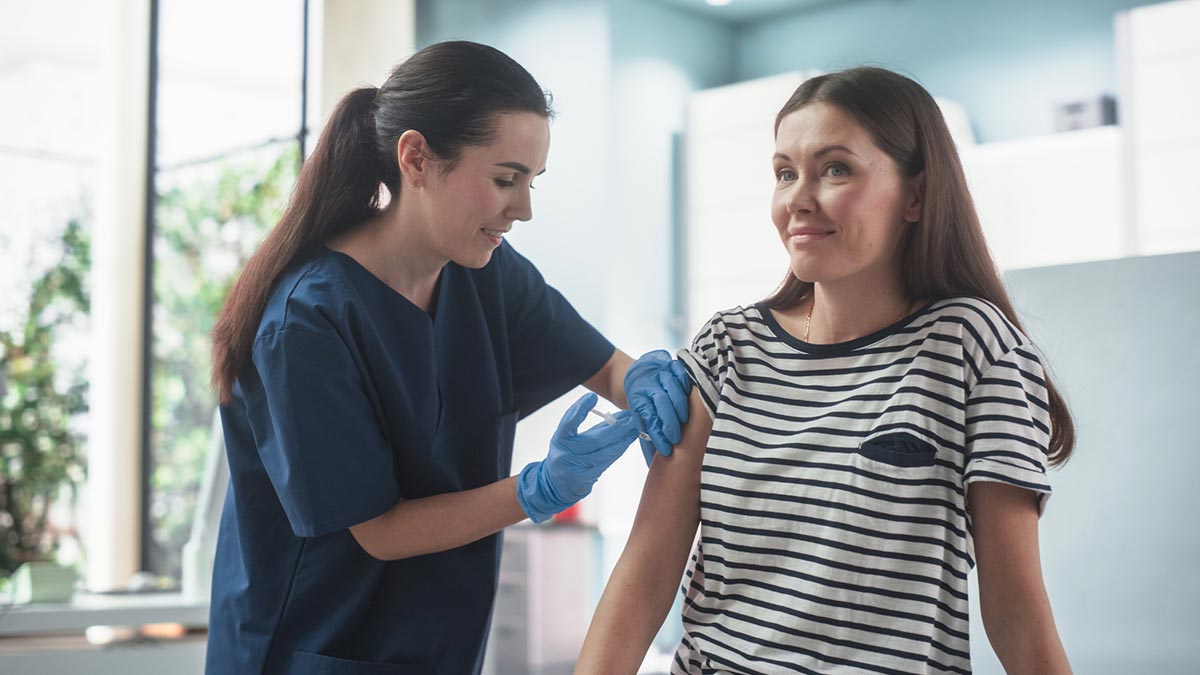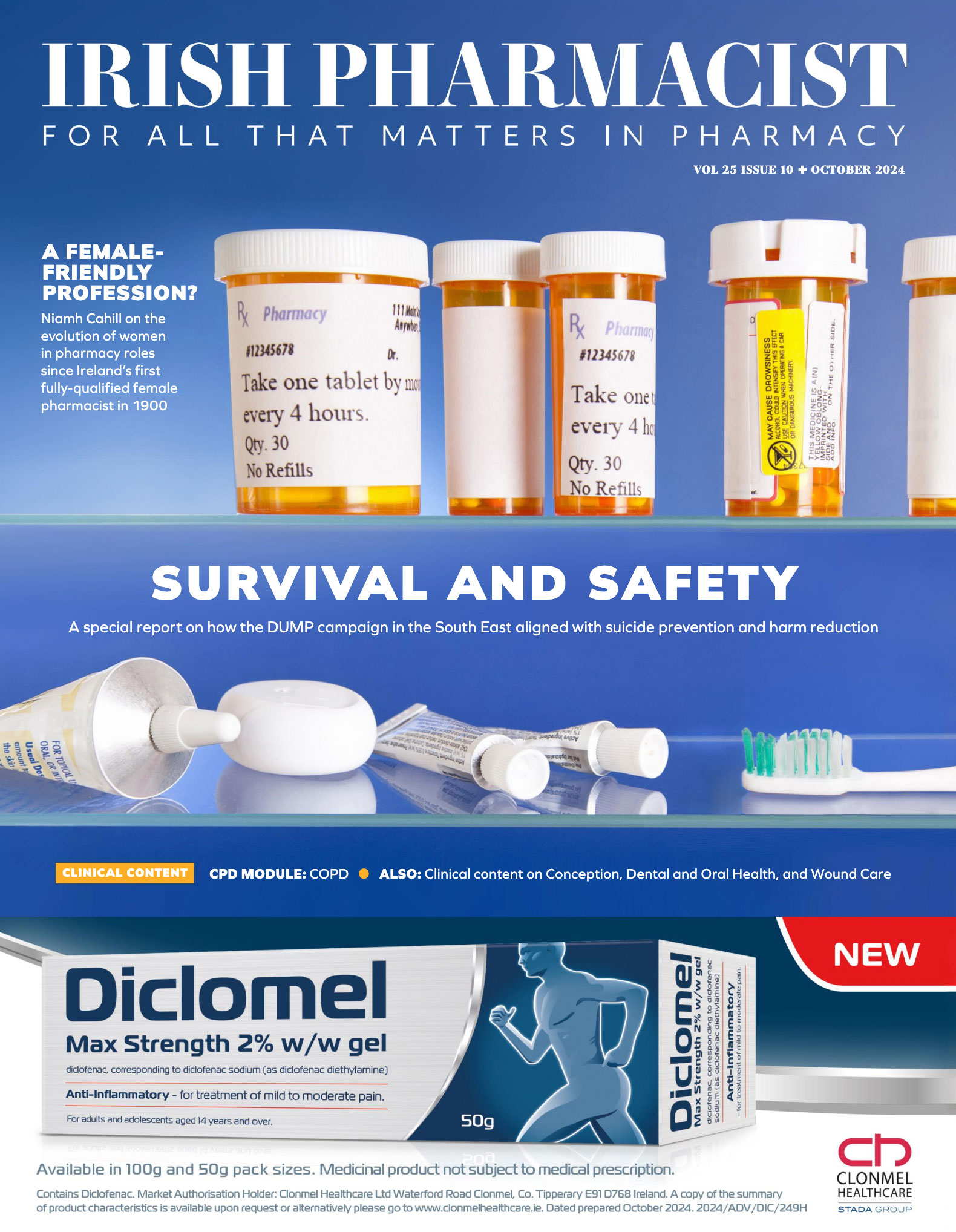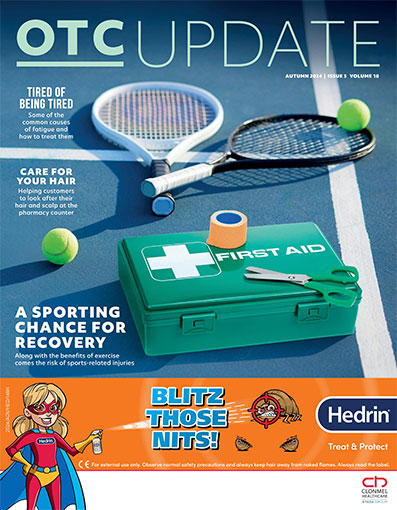An interview with a Preceptor Pharmacist on their experience of supporting a fourth-year pharmacy student on an experiential learning placement
The new integrated MPharm programme has been in place since 2015. Students now undertake experiential learning placements throughout their undergraduate programme. These placements are facilitated by APPEL (Affiliation for Pharmacy Practice Experiential Learning), a unique collaboration between the three schools of pharmacy — University College Cork, the Royal College of Surgeons in Ireland and Trinity College Dublin.
The first cohort of students are now entering their fifth and final year of the new programme. These students will be going on their final experiential learning placement in January 2020 for eight months, having already completed a two-week placement in second-year and a four-month placement in fourth year. They were the first students to complete the four-month experiential learning placement, so this presented an opportunity to ask one of the fourth-year Preceptors about their experience of participating in the APPEL programme.
As a Preceptor to a fourth-year pharmacy student on an experiential learning placement, was the experience what you expected?
Yes, the experience was what I had been prepared for from the APPEL training. The tone of the placement was different from when I had intern pharmacists in the past, as I had to keep in mind the APPEL guidelines and ensure their ethos throughout the student placement.
I briefed the team on the guidelines in advance of the placement, pointing out that the student was not going to be an additional member of staff, but supernumerary to the team. The student was here to experience practice and learn from us.
I planned a thorough induction for the first day. This set the tone for the student and it gave them clear guidance and a plan of what they would be doing while they were with us. It gave the student a great start to the placement. It set out the simple things, such as lunch breaks, plus the more involved items, such as looking at a few behaviours from the Core Competency Framework to get started on. I feel that investing time in the induction was crucial to ensuring the success of the placement.
Did you engage with any of the online resources and other supports offered by APPEL and if so, how did they support you in your role as a Preceptor?
I did the live training rather than the online training. I was aware that there were supports for me via the website, the APPEL office and the Practice Educators if I needed anything. I had a call from a Practice Educator, which I really appreciated, as it was good to touch base with someone on how things were going for me and my student.
In what way has your role as a Preceptor supported your personal CPD?
When your student asks a question that you don’t know, the answer to that is you are both learning. You want to teach them the right way, so it makes you reflect more and think about everyday things and how you do them. For example, a conversation about inhaler techniques led us to identify that we needed to update our resources around inhaler technique, such as placebos.
What has the impact of having an experiential learning placement student had on your own practice, on your dispensary team and on your OTC team?
I felt it gave the dispensary team confidence, as they helped to train the student up on different aspects of the dispensary processes. Equally, the student had to complete the in-house OTC training programme, which the OTC staff supported the student with, giving them extra responsibility within their role.
How did the student competency assessment support you as a Preceptor?
It helps focus your energies and supports the student’s training plan. I felt that the Level 3 requirement for the competency assessment was realistic for the stage of education and experience of the student, but it also set the expectations of the student.
On reflection, what are your thoughts of the experiential learning placements within the new integrated pharmacy programme?
Getting real-life experience at an earlier stage in the course gives the student a better insight into the profession.
Having the opportunity to avail of different placement settings, such as Role Emerging Practice, is very encouraging for students, as it broadens their horizons and options within the profession. It makes the undergraduate educational programme more relevant to practice.
I enjoyed the experience of being a Preceptor — it was overwhelmingly a positive experience.







